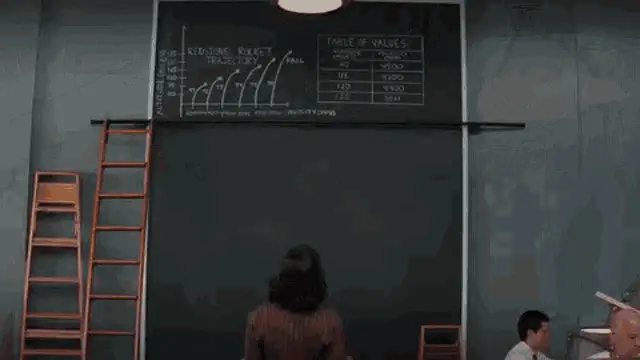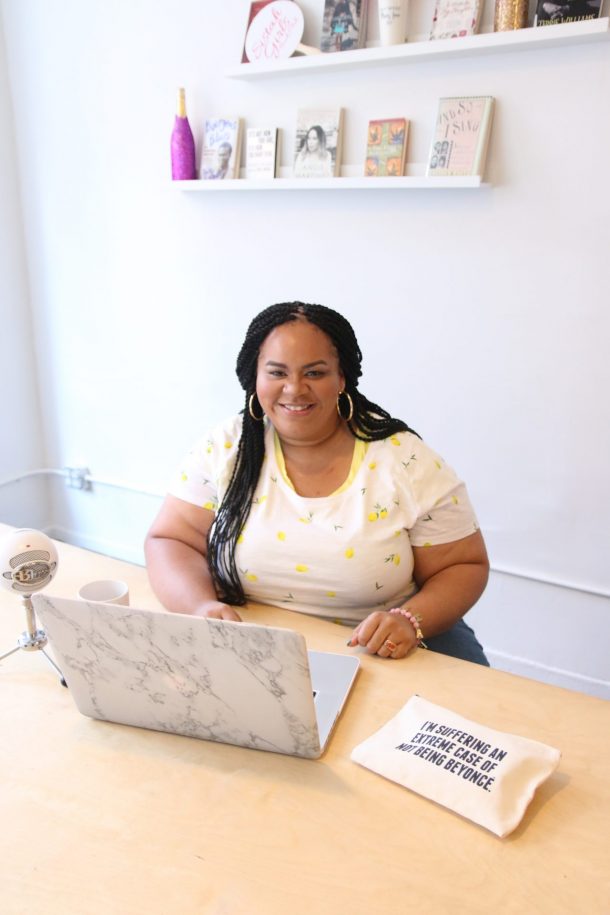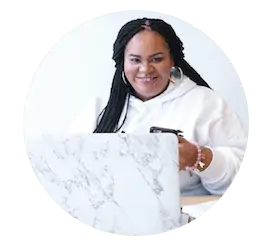Hidden Figures Film Review
When I purchased my ticket to see “Hidden Figures” I had to make sure it didn’t have another film title on it. In the sixties, America was segregated and in 2017 even though I don’t have to drink out of a colored water fountain, the very act of checking my ticket to ensure it wasn’t purposely changed made me take a moment and thank God for Katherine Johnson, Dorothy Vaughan, and Mary Jackson.
The launch of astronaut John Glenn into orbit changed the game for America during the “Space Race.” It was this operation that gave America the confidence it needed to ensure that we would win the race against Russia. And without these women, it wouldn’t have been possible.
This film is not about everyone
The film opens with actress Octavia Spencer who plays Dorothy Vaughan under her car trying to get it to start. Both Katherine Johnson (played by Taraji P. Henson) and Mary Jackson (played by Janelle Monáe) are waiting when they notice a cop car approaching. These highly educated women all stiffen up because in the segregated south seeing a police car when you are stuck alongside the road does not signify help. The cop proceeds to pull over and question them as if he doesn’t notice they need assistance and not an interrogation. Katherine begins to look down and make herself small so she won’t be viewed as colored woman sassing the police.
Dorothy follows suit and ensures the cop they will be off the road in no time. It’s Mary who has the attitude and uses her wit and the cops ignorance to get a police escort to work. The opening of this movie sets the tone for what it must have been like to be that brilliant, and have to dim your light so your intelligence won’t be confused with disrespect to ignorant, racist, white trigger-happy police officers.
This film is not about all women, it’s not about being a feminist, it’s not even about coming together as a country blurring the lines of race, sexism, and oppression to create a moment in history. This movie is about and for Black women. It’s our story, one that we can hold onto, one that we deserve. It’s a story of three brilliant black women who despite racism, sexism, and oppression walked into NASA and made history.
Colored Computers
Is what their brilliance was reduced to, not mathematicians or engineers which would have been their proper titles. These black women who served as mathematicians and engineers were put in the basement to work as temporary workers. Each week they were shipped out into different departments where they would assist NASA in their daily efforts to reach space before Russia. Each week their minds were being used in a different way to compute and work on math so complex that some of the math had not yet been invented. They didn’t complain about hostile work environments, they worked without equal pay, they worked knowing they were being overlooked, disrespected, and used only when NASA had no other choice but to work with them.
In one scene Katherine (played by Taraji P. Henson) gets up to get coffee and the entire room filled with white men stop moving. They stopped moving because she had the audacity to pour herself a cup of coffee from the same coffee pot they used. Katherine was the genius among the geniuses, but in a room filled with white privileged men all they saw was a colored woman pouring coffee from their coffee pot.
Dorothy (played by Octavia Spencer) handles all the roles of a supervisor but does not have the title of a supervisor. She finds the courage to ask her boss who happens to be a white woman about filling the supervisor position and gets brushed off. I was very happy that white women are shown as being oppressors in this film. In so many films white women tend to take on the passive, “It’s my husband’s doing not mines,” role and we dismiss the active roles they play when it comes to racism. (How Trump won the White House)
Mary (played by Janelle Monáe) is encouraged by her Polish boss to apply to the engineering training program. She gains the confidence to apply only to be told that a new set of standards were created.“Every time we get close to the finish line, they move it,” says Mary. I thought about her words, how it pertains to my life as a black woman, and how Mary handled the situation. She didn’t stop fighting, she made sure she did everything possible to receive a fair shot in an unfair system.
Excellence was the standard
There was a pivotal moment in the film when Mary tells the judge she has no choice but to be the first. All three of these women are brilliant there is no denying that, but they had to be the first because they didn’t have a choice. Procrastination, mediocracy, excuses, laziness, none of those were options. Excellence was the only way, being excellent every day was the standard.
The come to Jesus moments
Katherine finally goes off on the director of the Space Task Group, Al Harrison (played by Kevin Costner).
He demands to know why she is never where he needs her to be. Katherine finally lets him know how far she must go to use the bathroom. In this one powerful scene, the picture of how black women are viewed in America is painted so painfully clear.
How degrading and hurtful must it have been to have to run across a campus that you work long hours’ day in and day out to use the bathroom only to be reprimanded when you got back?
Katherine’s growth in the scene was shown, her head no longer sunk low when a white man yelled, she stood firm in who she was and told him that she was here. Just like every other white man in the room, she worked hard, going above and beyond to serve the country even with all the odds heavily stacked against her. She was here and deserved better.
Sidebar: Taraji P. Henson had me like this the entire scene…
Black Unity
It wasn’t loud, it wasn’t boisterous but it was there. From the opening of the film when the black teachers gave Katherine’s family the money to go and attend another school, black unity was showcased. And no matter how late Katherine worked Mary and Dorothy always waited outside for her because they all drove to and from work together. Mary’s husband initially didn’t want her to pursue engineering, he didn’t want her to get her hopes up because in his world a very real world black people couldn’t get ahead no matter how smart they were.
While his views weren’t unjust when the courts ruled in Mary’s favor he gifted his brilliant wife with a set of mechanical pencils on her first night of classes. While Katherine worked long hours, her mother helped by watching her kids.
And the biggest form of Black Unity that I am still sitting with is when Dorothy realized computers would be the future and told all her workers (black women) they needed to become programmers.
Dorothy was a forward thinker she knew computers would eventually replace workers. She did her research and took the knowledge back and made sure her team learned computer programming. Once she finally got promoted she was informed that her workers would be let go because of the computers. She refused to take the job unless she could move on with them…all of them. By this time Dorothy had become an asset and leveraged her new set of skills to ensure a job for herself and her team. She could have just taken the supervisor position and left everyone to fend for themselves. But she knew her win was also a win she could use to help other black women.
They all succeeded because they helped each other, a win for one was a win for all. Everyone worked together doing what they could to achieve success and support those who were on the front lines. It was amazing to see black unity on the big screen.
This film is our’s honey, all of it. It’s for our black girls to smile big and say they want to work at NASA when they grow up. It’s for us to talk about during our lunch break at work and say to each other, “Yassss! Taraji did that! She better get every last Golden Globe on the shelf.” It’s for our grandmothers who know all too well the story of segregation because they lived through it. They smile proudly looking down at their tired feet and wrinkled knuckles knowing a part of their story was told on screen.
I know all woman want “Hidden Figures” because it’s just that good. America will make it a historical film for all to enjoy, but this is our story, a story about three brilliant black women and their work at NASA.



As I watched the interactions between the white women and the black women in the film, it clarified something many had to learn the hard way in November. Everyone that pretends to be your ally isn’t.
Ninety-eight percent of black women voted for Hillary Clinton, and only forty-seven percent of white women. The largest beneficiaries of affirmative action voted against their best interest. I found that both astonishing and disappointing.
As I watched Hidden Figures, cherishing and celebrating all of that melanin tainted, estrogen filled magic, I sat a bit taller, knowing that racism and sexism almost doomed the space program
Hidden figures came at a great time for me as a Black woman and artist, standing as a reminder of grace under pressure and perseverance in the face of a kind of adversity I hope we never know.
I loved Hidden Figures, and bravo for an awesome review.
Thank you so much for taking the time out to leave a comment! I agree with everything you stated it was so disappointing to watch in the elections. This movie definitely woke something up inside of me, to keep going and pushing even when it looks tough and even when I don’t see the light at the end of the tunnel…I have to keep going no matter what.